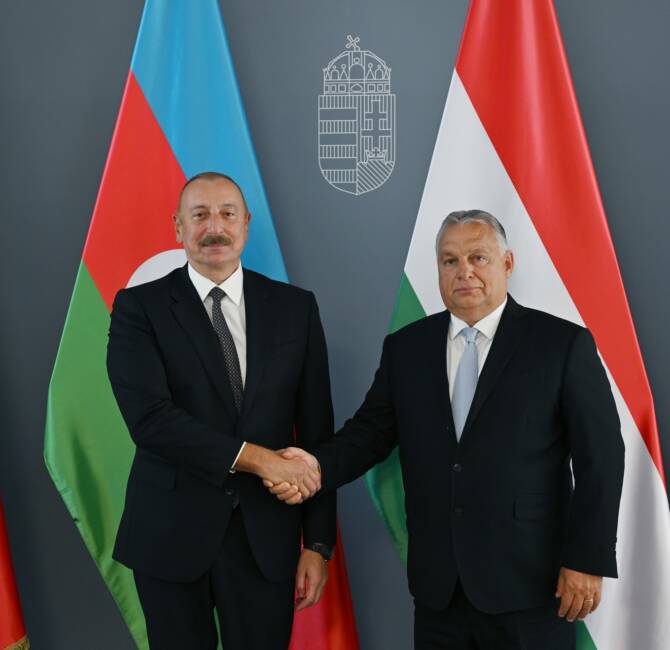Slovakia – Three and a half weeks after the September 30 parliamentary elections and after tensions over her refusal to accept a minister that had been presented by the Slovak National Party (SNS, a social conservative nationalist party), Slovak President Zuzana Čaputová has finally appointed Robert Fico’s new government, which is supported by a coalition of the two social democratic parties, Smer-SD and Hlas-SD, alongside SNS.
Smer-SD leader Robert Fico has thus returned to the post of Prime Minister, a position he previously held from 2006 to 2010 and from 2012 to 2018, at which time he gave way to Peter Pellegrini who has since become the leader of Hlas-SD following a split from Smer-SD.
Six ministers for Smer, seven for Hlas, and three for SNS
Fico’s Smer-SD now has six ministers: Defence Minister Robert Kaliňák, Finance Minister Ladislav Kamenický, Agriculture Minister Richard Takáč, Justice Minister Boris Susko, Transport Minister Jozef Raz, and Foreign Affairs Minister Juraj Blanár.
The other Social Democratic party, Peter Pellegrini’s Hlas-SD, has seven ministers: Deputy Prime Minister for the Recovery Plan Peter Kmec, Labour Minister Erik Tomáš, Health Minister Zuzana Dolinková, Investment and Computerisation Minister Richard Raši, Economy Minister Denisa Saková, Education Minister Tomáš Drucker, and Interior Minister Matúš Šutaj Eštok.
Finally, SNS has the following three ministers: Tourism and Sports Minister Ján Krišanda, Culture Minister Martina Šimkovičová, and Environment Minister Tomáš Taraba.
Zuzana Čaputová blocked the appointment of a “climate-sceptic” nationalist to the environment ministry
President Čaputová had refused to appoint the new government if Rudolf Huliak, of the Slovak National Party (SNS), was to be part of it. Huliak was predicted to become minister for the environment. Čaputová was particularly critical of his candidacy because he had taken a different stance on climate change from the dominant view. In the president’s opinion, Huliak’s appointment could hamper the environment ministry’s work. According to the President’s spokesman, Martin Strižinec, “the proper functioning of the environment ministry cannot be ensured by a person whose statements run counter to this country’s long-standing environmental policy and international obligations.”
In addition, a petition opposing his appointment to the new government had been signed by 43,000 people, including 113 scientists, university professors, experts, and public figures.
Some ministers have already held senior positions
It is worth noting that some of the ministers eventually appointed are not newcomers. Robert Kaliňák (Smer), who has been an MP since 2002, was deputy prime minister and interior minister from 2012 to 2018 in the second and third Fico governments; Ladislav Kamenický (Smer) was finance minister from 2019 to 2020 in Peter Pellegrini’s government; Juraj Blanár (Smer) was governor of the Žilina region (north of the country); Richard Raši (Hlas) was mayor of Košice (Cassovia), the country’s second-largest city; Denisa Saková (Hlas) was interior minister from 2018 to 2020; Tomáš Drucker (Hlas) was health minister from 2016 to 2018 and interior minister in March–April 2018; and Ján Krišanda (SNS) is the vice-chair of his party.
Pellegrini becomes the parliament’s speaker
Hlas-SD leader and former prime minister Peter Pellegrini was elected president of the National Council, Slovakia’s unicameral parliament, by 131 votes out of 150, thus succeeding Boris Kollár, the leader of the Sme Rodina party.
Slovakia now closer to Viktor Orbán’s Hungary
The return of social-democrat Robert Fico as Prime Minister, at the head of a coalition of the social democratic left that has been described as “populist” by the mainstream Western media and a nationalist party, as in the 2010s, augurs a rapprochement between Slovakia and Hungary. Fico’s positions are close to those of Hungary’s Viktor Orbán on a number of subjects, including the supply of arms to Ukraine, to which he is opposed; the relocation of migrants across all European Union member states that is being forced through by Brussels; and the proposed reform of the European treaties involving, among other things, the elimination of the member states’ right of veto in the European Council in certain key areas affecting their sovereignty. Fico told Slovak public broadcaster RTVS last Tuesday that if the right of veto is suppressed, it will make no sense for Slovakia to remain in the EU.
Fico and Pellegrini’s positions led to their respective parties being suspended by the Party of European Socialists (PES) following their victory in the Slovak elections in September. According to the PES press release, the Slovak Social Democrats no longer share “the values of the PES family”.
Thus, the new Slovak government will be a welcome ally for Hungary on these issues at a time when Poland is set to adopt views that are more aligned with Brussels, Berlin, and Paris after its October 15 elections. Although it must be said as well that on Wednesday Donald Tusk, who is the prime ministerial candidate of the new parliamentary majority in Poland, expressed his clear opposition to a reform of the EU treaties after the vote in the European Parliament’s Committee on Constitutional Affairs (AFCO) in favour of the far-reaching treaty reform proposals drafted by a group led by the Belgian Eurofederalist Guy Verhofstadt.




